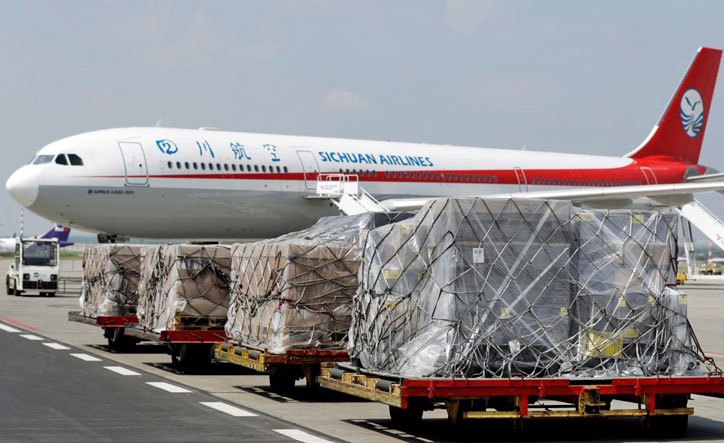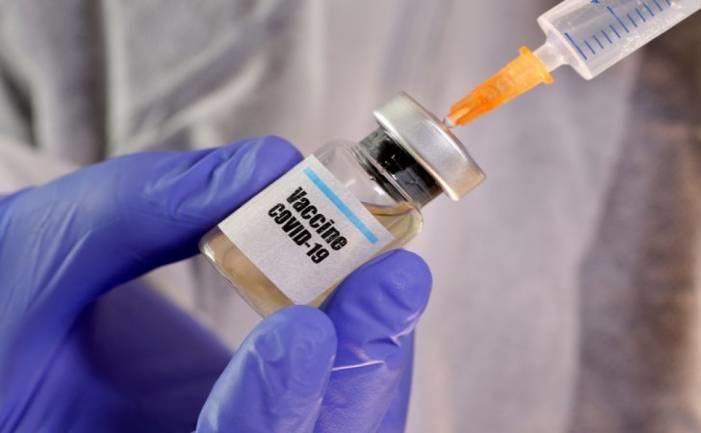The various airline companies all over the world are urging the respective governments to plan the airline logistics efficiently, before the Covid vaccine is ready to be distributed. The International Air Transport Association (IATA) warned that transporting billions of Covid-19 vaccine doses around the world is a massive and complex logistics task, that risks severe capacity constraints.
Providing just a single dose of the vaccine to 7.8 billion people worldwide would fill more than 8,000 Boeing 747 cargo planes, IATA said, highlighting the enormous size of the deliveries once the vaccine is approved and available for distribution.
“We now turn our eyes to the next challenge, which is the role aviation could play in vaccinating the world,” Glyn Hughes, IATA’s global head of cargo, told reporters in an online press conference. “If there are multiple doses, then you can see that there will be a considerable burden on the aviation sector to help play a role in transporting these critical commodities around the planet.”

Safely delivering the vaccines will be “the mission of the century” for the global air cargo industry and requires careful planning now by governments and the vaccine manufacturers, Alexandre de Juniac, IATA’s director general said in a statement on Wednesday.
“We urge governments to take the lead in facilitating co-operation across the logistics chain so that the facilities, security arrangements and border processes are ready for the mammoth and complex task ahead,” Mr de Juniac said.
Among the key challenges will be transporting the vaccine, a highly sensitive product, at a temperature ranging from 2 degrees Celsius to 8 degrees Celsius. It is a difficult task considering the temperature changes between airports, onboard a plane, on arrival and during local distribution.
“It is critical when moving something as sensitive as that, that the right facilities are in place,” Mr Hughes said. If the vaccine requires transportation in a frozen state, in addition to the scale of the distribution, then the magnitude of the challenge makes it clear that preparation is needed in advance, he said.

Key considerations include border procedures that ensure fast processing times, adequate security measures, adequate staffing, appropriate handling and customs clearance, IATA said. Vaccines are a valuable commodity, so theft, loss and tampering are also a concern, meaning security of transportation is crucial.
Governments need to work with each other to ensure a harmonized reopening of borders, Mr Hughes said. “There would be some form of global airlift needed,” he said, referring to the transportation of millions of tiny vials of vaccine. Given the scale of production and the time required to manufacture vaccines on a large scale, shipments are likely to be phased, he said.
Agencies such as the WHO and other relevant UN bodies would identify and devise a distribution mechanism for vaccines, Mr Hughes said. However, capacity constraints facing the air cargo industry remain a major concern in planning vaccine transportation programmes.
“Even if we assume that half the needed vaccines can be transported by land, the air cargo industry will still face its largest single transport challenge ever,” Mr de Juniac said. “If borders remain closed, travel curtailed, fleets grounded and employees furloughed, the capacity to deliver life-saving vaccines will be very much compromised.”
The air cargo, which was drastically affected during the pandemic, now has a hope in emerging to the world needs.




![The Top & Most Popular Seafood Bucket Restaurants in Dubai for you [Never Miss]](https://uae24x7.com/wp-content/uploads/2020/09/8-seafood-in-a-bucket-scaled-e1600739237403.jpg)
![Procedures for Renewing the Driving License in Abu Dhabi [3 Simple Steps]](https://uae24x7.com/wp-content/uploads/2020/07/Capture-9-e1595666454466.jpg)





